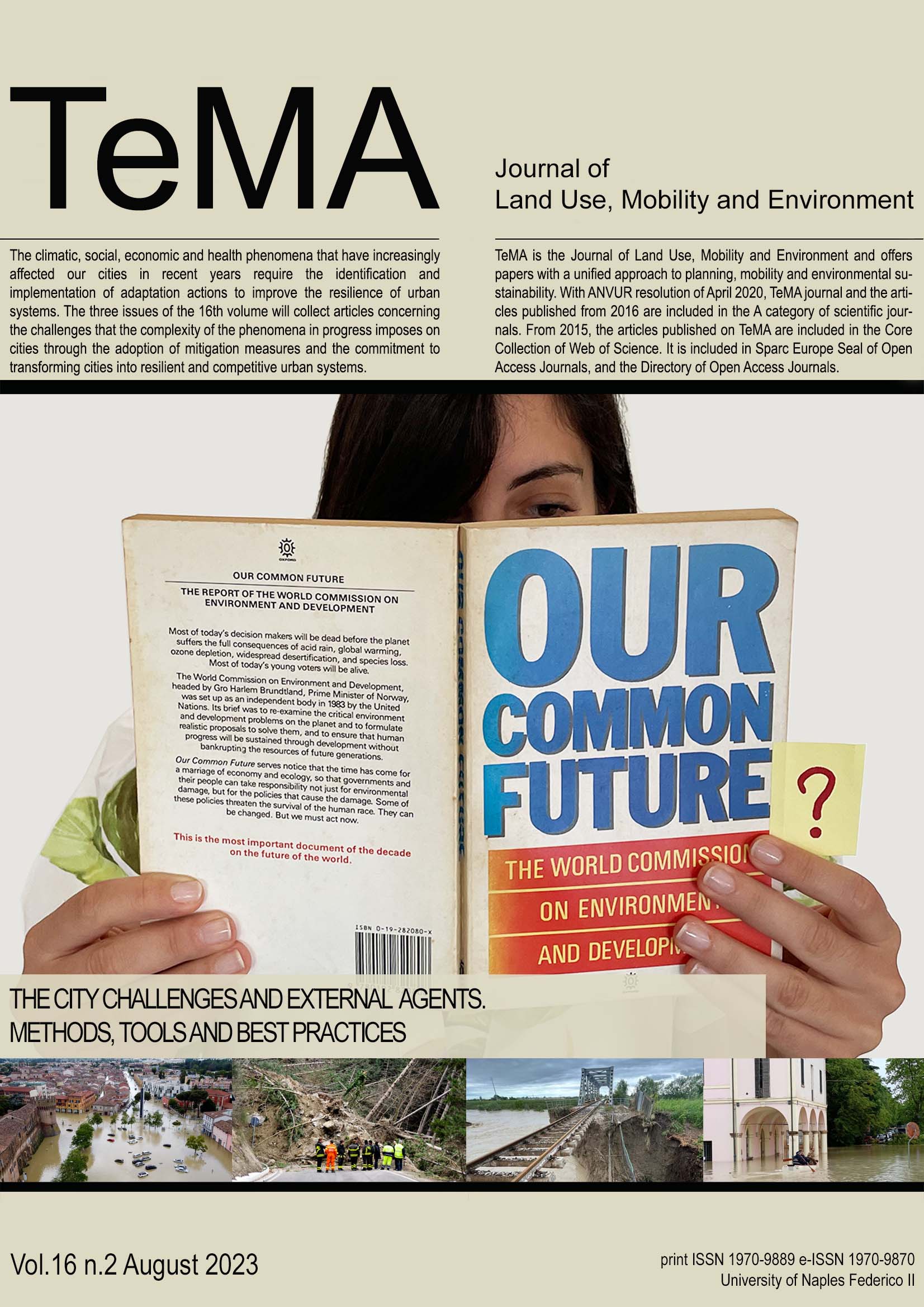Climate change-induced conflicts in Southeast Nigeria and urban food security
Implication to urban sustainability and sustainable development
DOI:
https://doi.org/10.6093/1970-9870/9556Keywords:
Climate change, Food security, Environmental conflictAbstract
Climate change is multifaceted and complex in its impacts on the human population across the globe. The areas of impacts include food insecurity and urban sustainability issues, which are currently ravaging the developing nations where sustainability policy frameworks are lacking or in passivity. The complex impacts of climate change on the urban population have been explored by some researchers in other regions of the world however, the nexus between climate change-induced conflicts and urban food insecurity and sustainability crises is yet to be empirically explored especially in the developing nations such as in sub-Saharan Africa. The aforementioned research and policy problem was the drive to the present study. The study which was guided by sustainability and climate change models, involved 1,658 respondents among the farming communities in southeast Nigeria using survey design and questionnaire as data gathering instrument. The study concludes that there is a cycle of anthropogenic activities among the urban population contributing to climate change, and climate change crises returning to urban population in form of food security and urban sustainability crises due to weak and passive environmental sustainability policy framework in Nigeria.
Downloads
Downloads
Published
How to Cite
Issue
Section
License
Authors who publish in this journal agree to the following:
1. Authors retain the rights to their work and give in to the journal the right of first publication of the work simultaneously licensed under a Creative Commons License - Attribution that allows others to share the work indicating the authorship and the initial publication in this journal.
2. Authors can adhere to other agreements of non-exclusive license for the distribution of the published version of the work (ex. To deposit it in an institutional repository or to publish it in a monography), provided to indicate that the document was first published in this journal.
3. Authors can distribute their work online (ex. In institutional repositories or in their website) prior to and during the submission process, as it can lead to productive exchanges and it can increase the quotations of the published work (See The Effect of Open Access)


